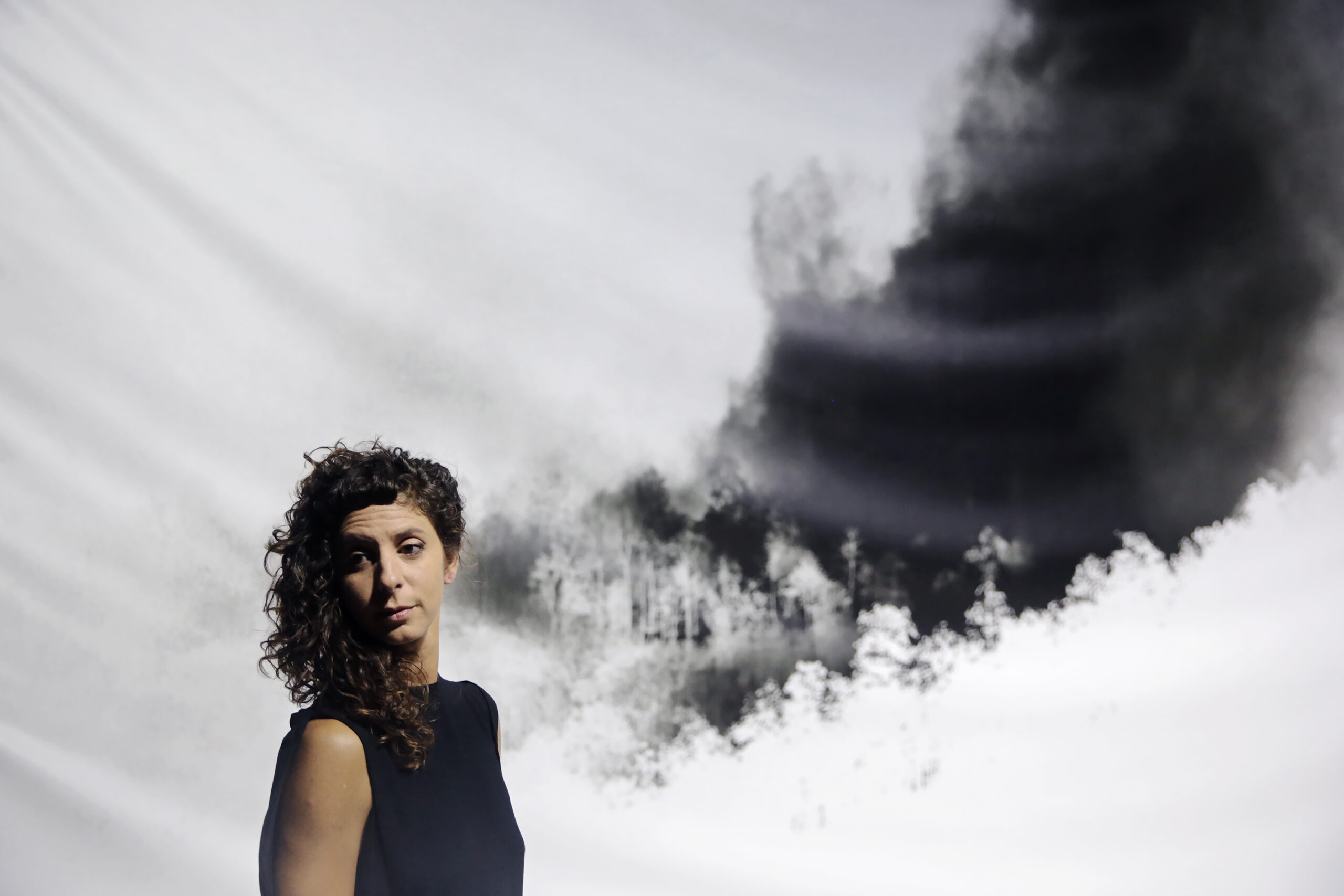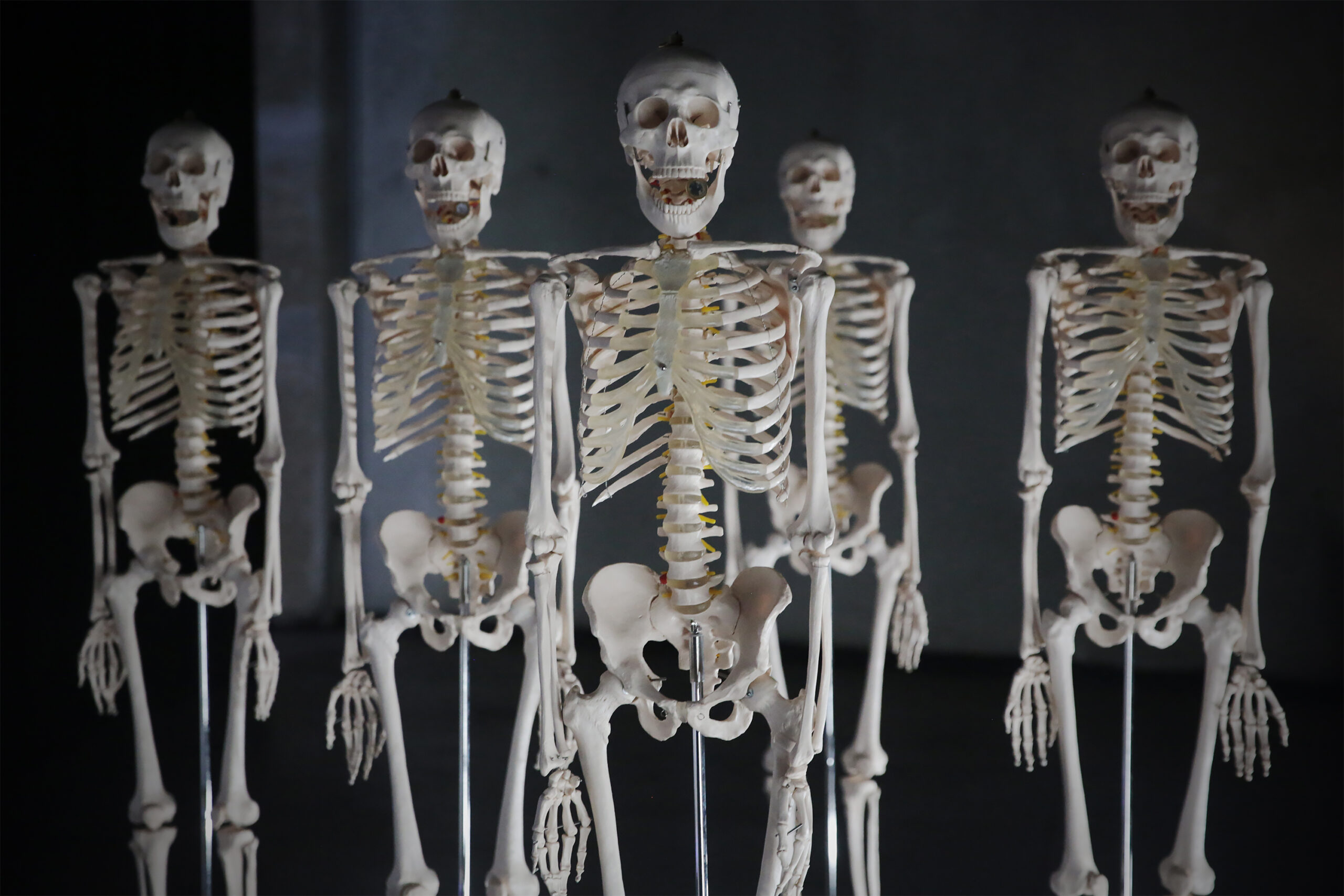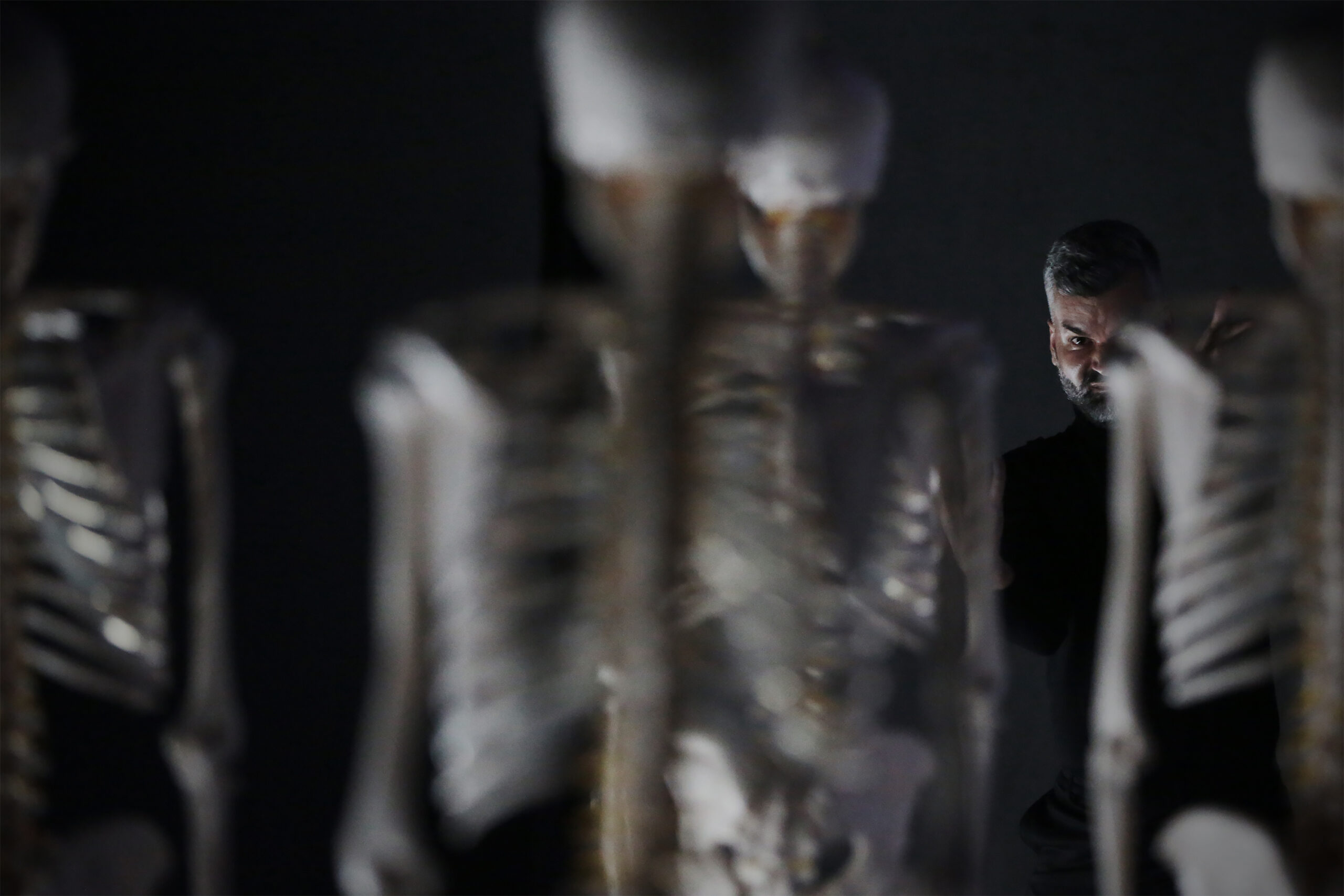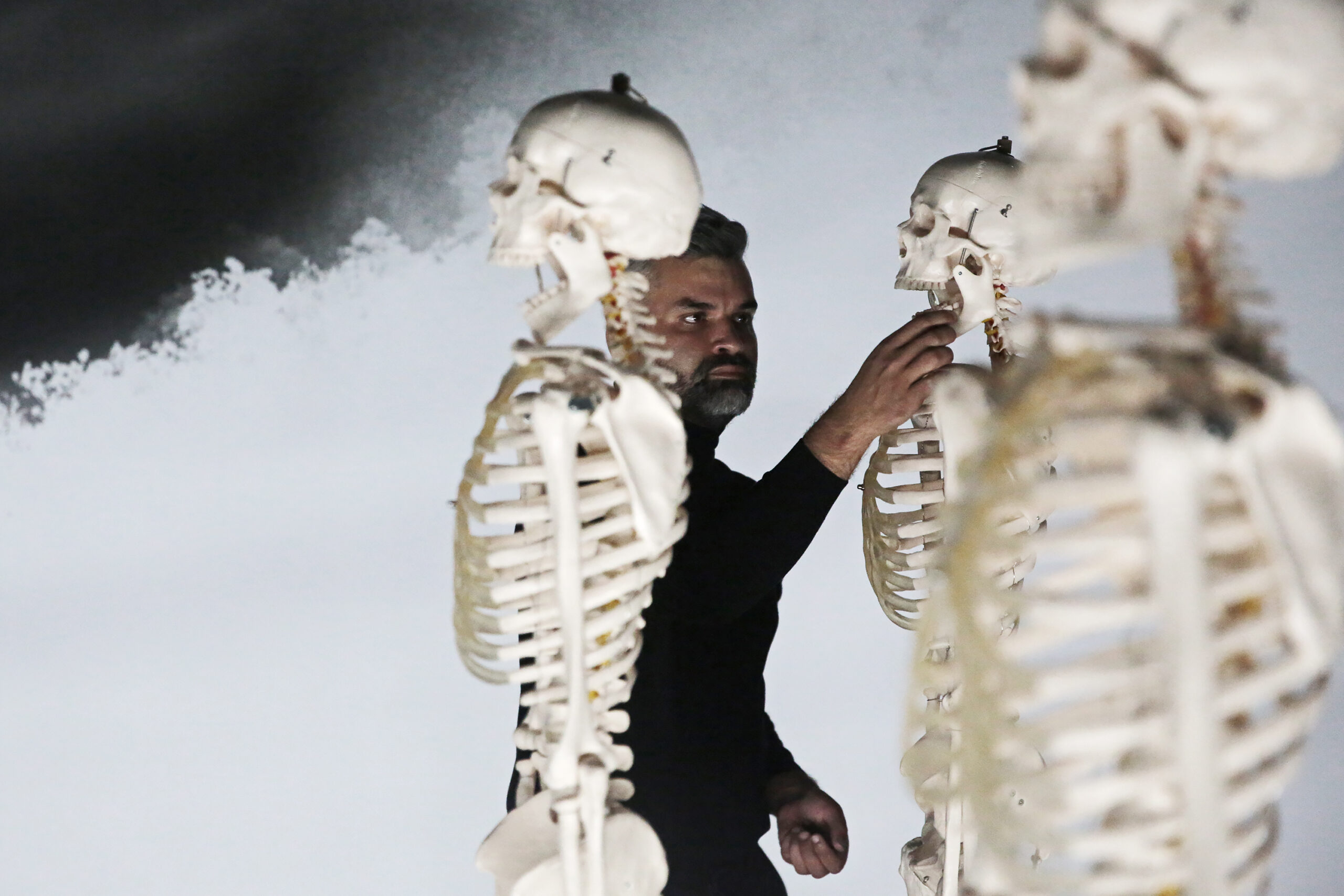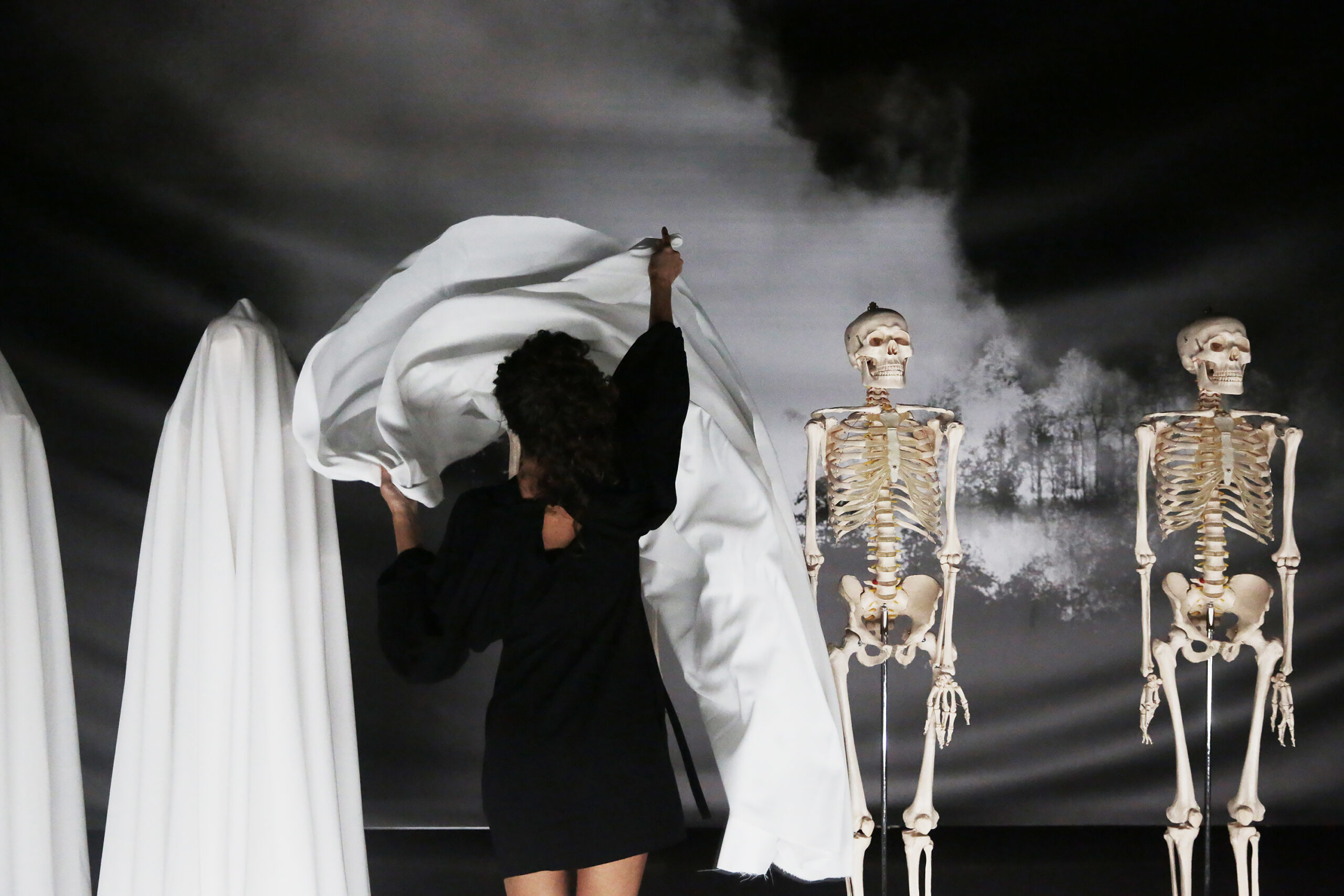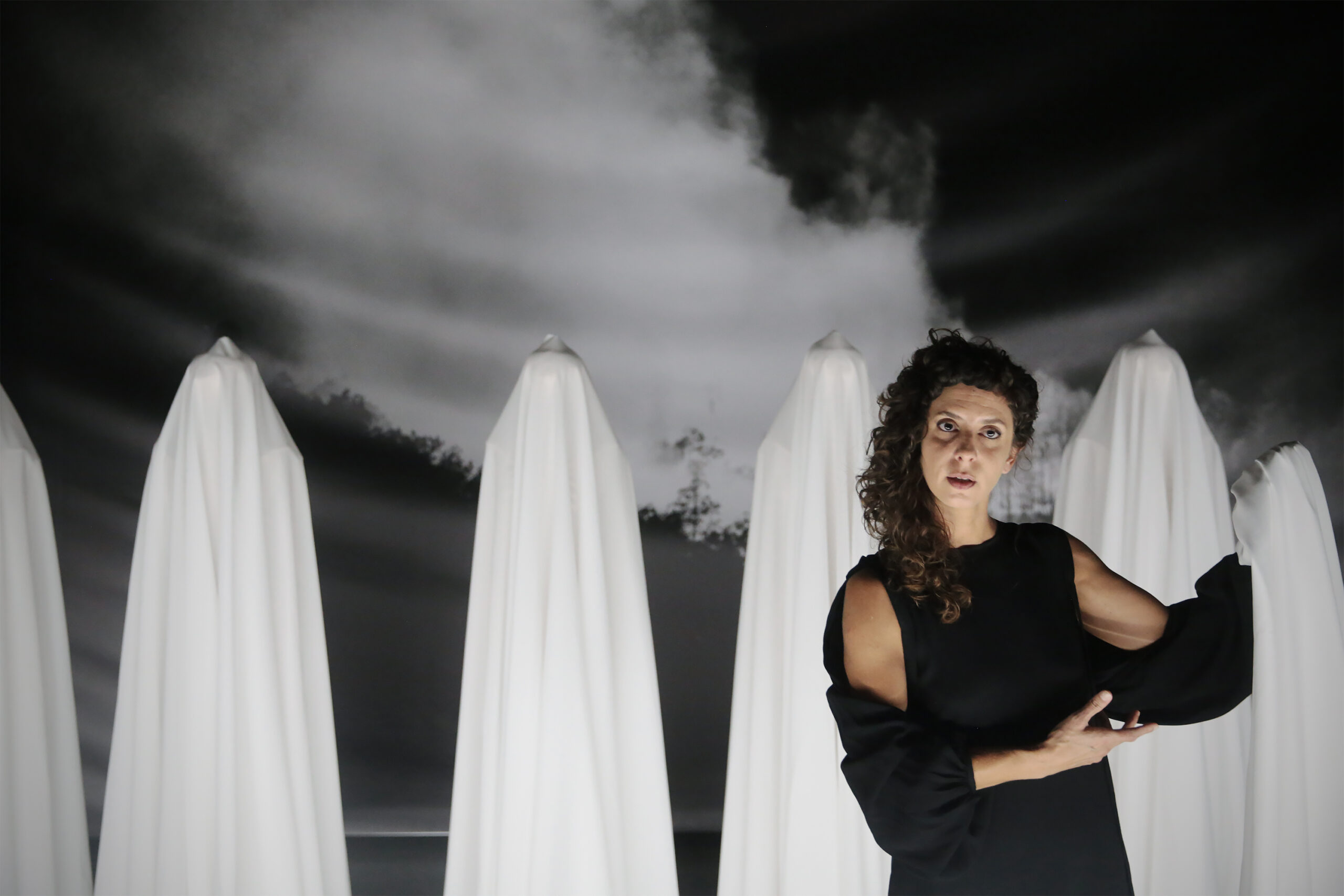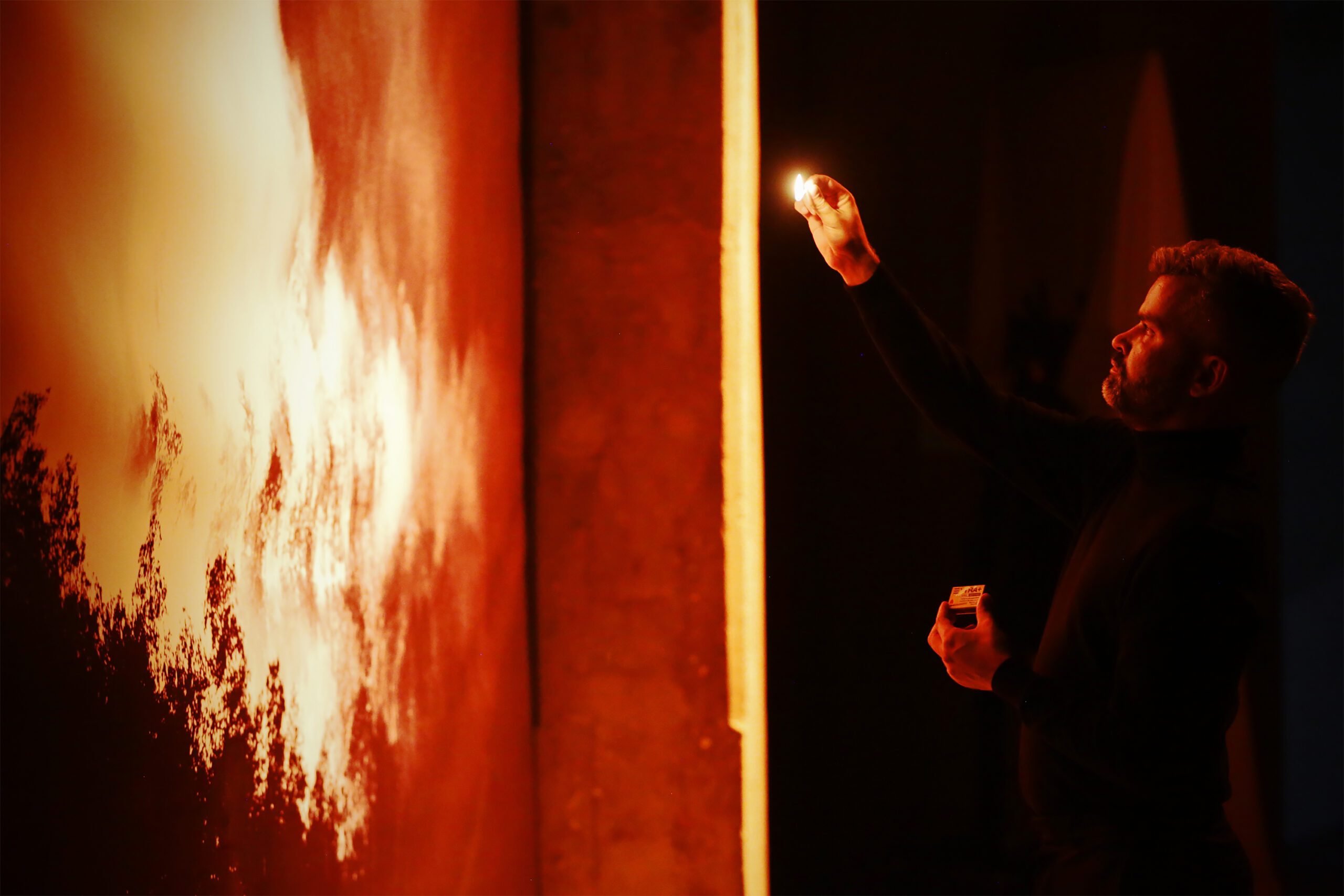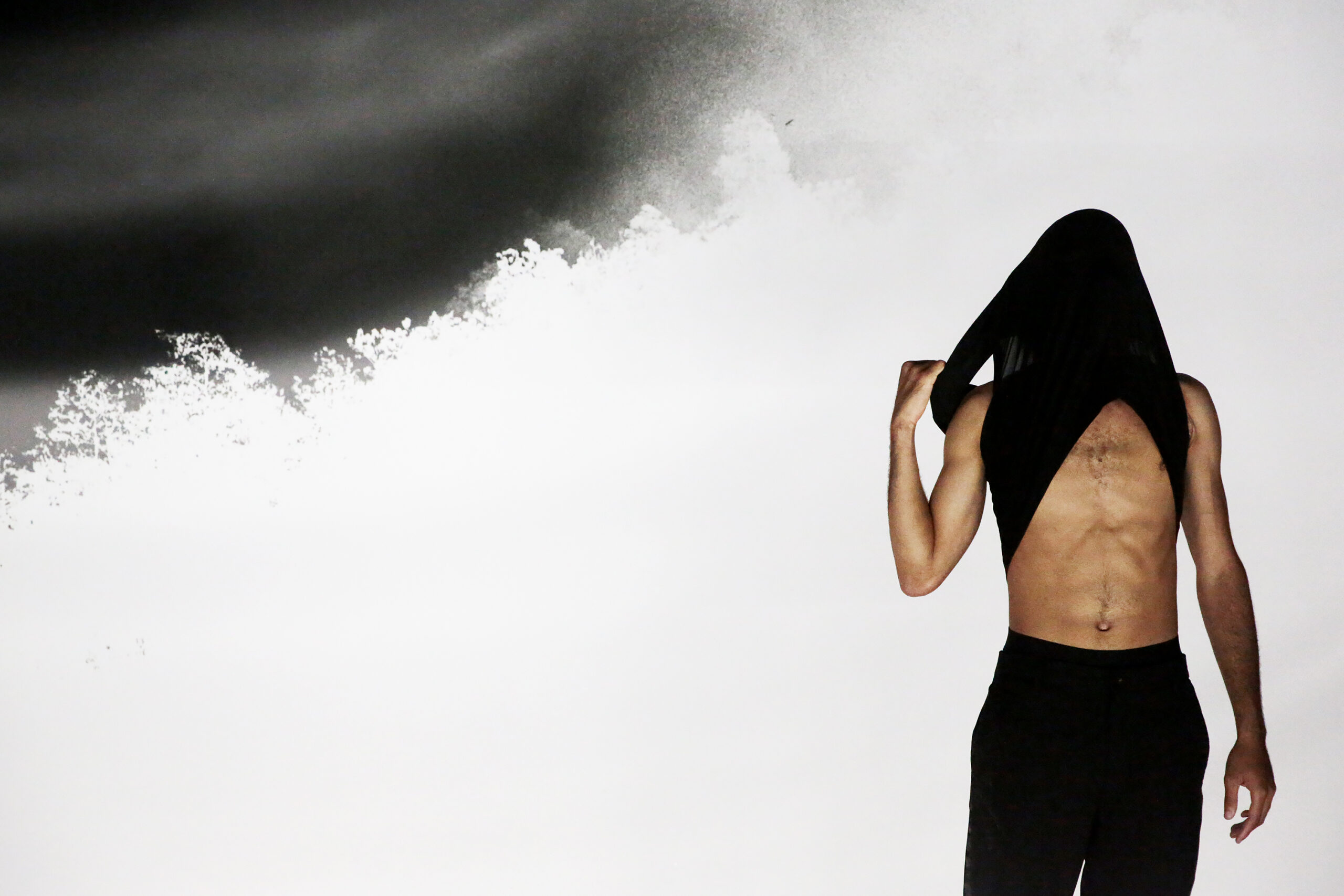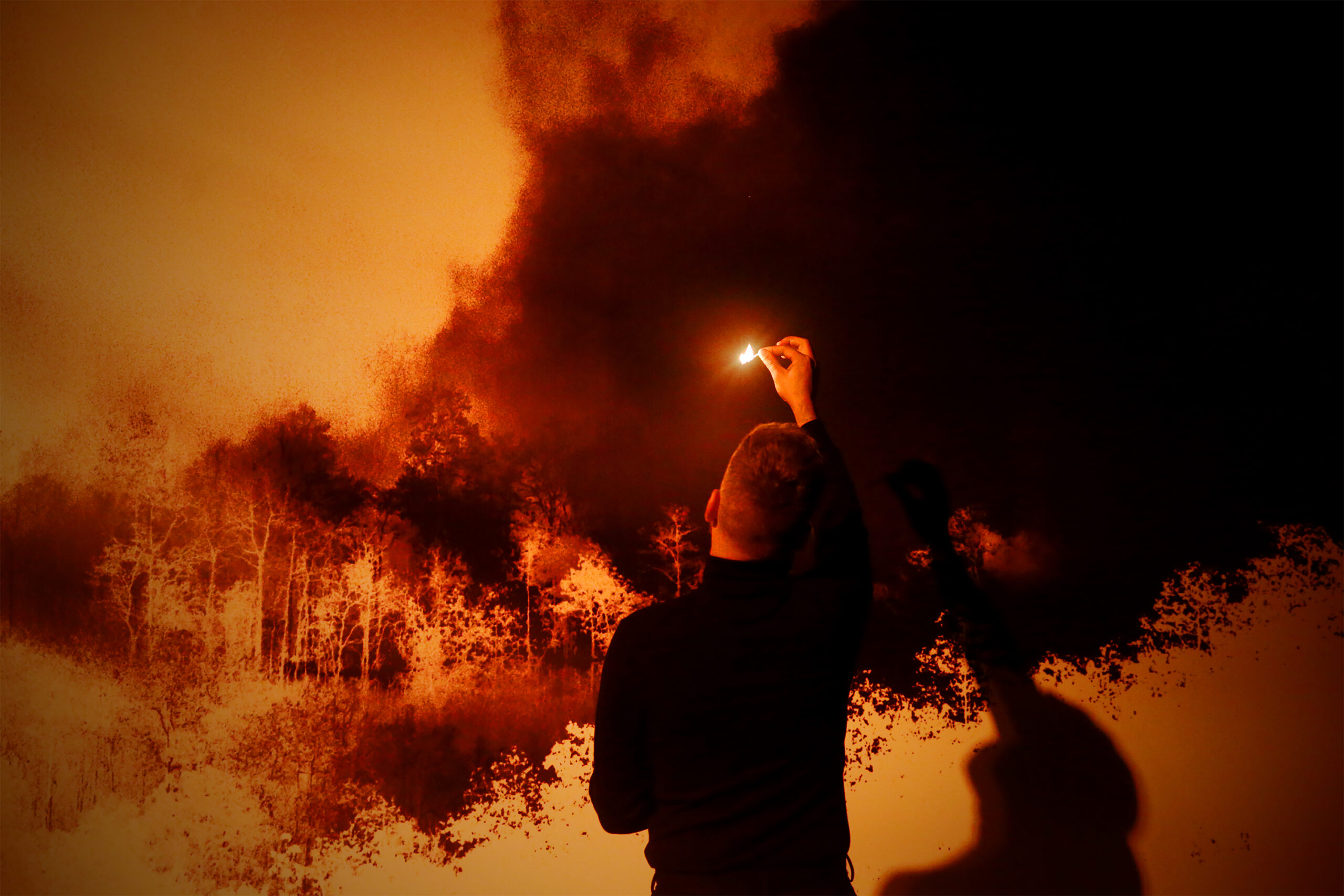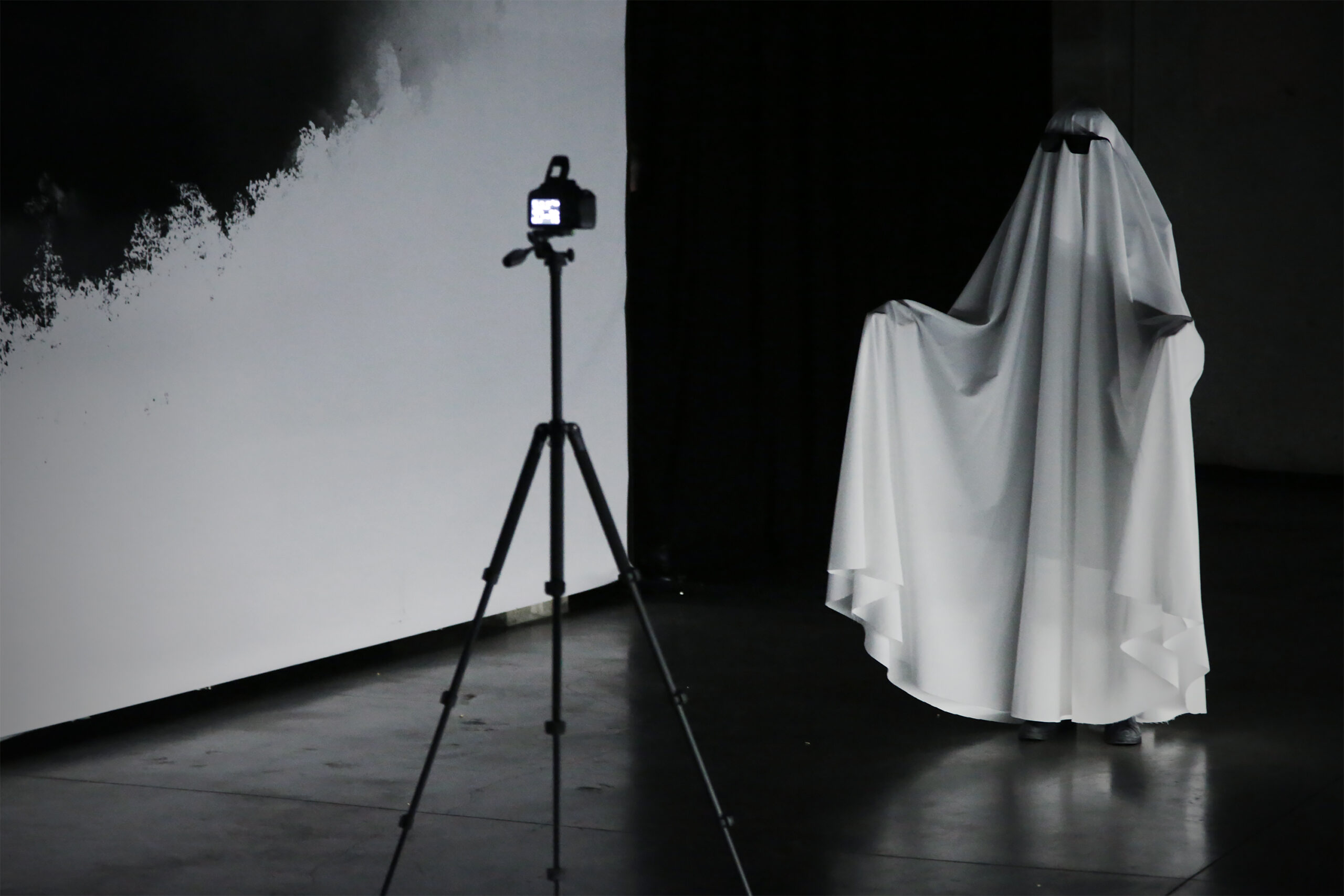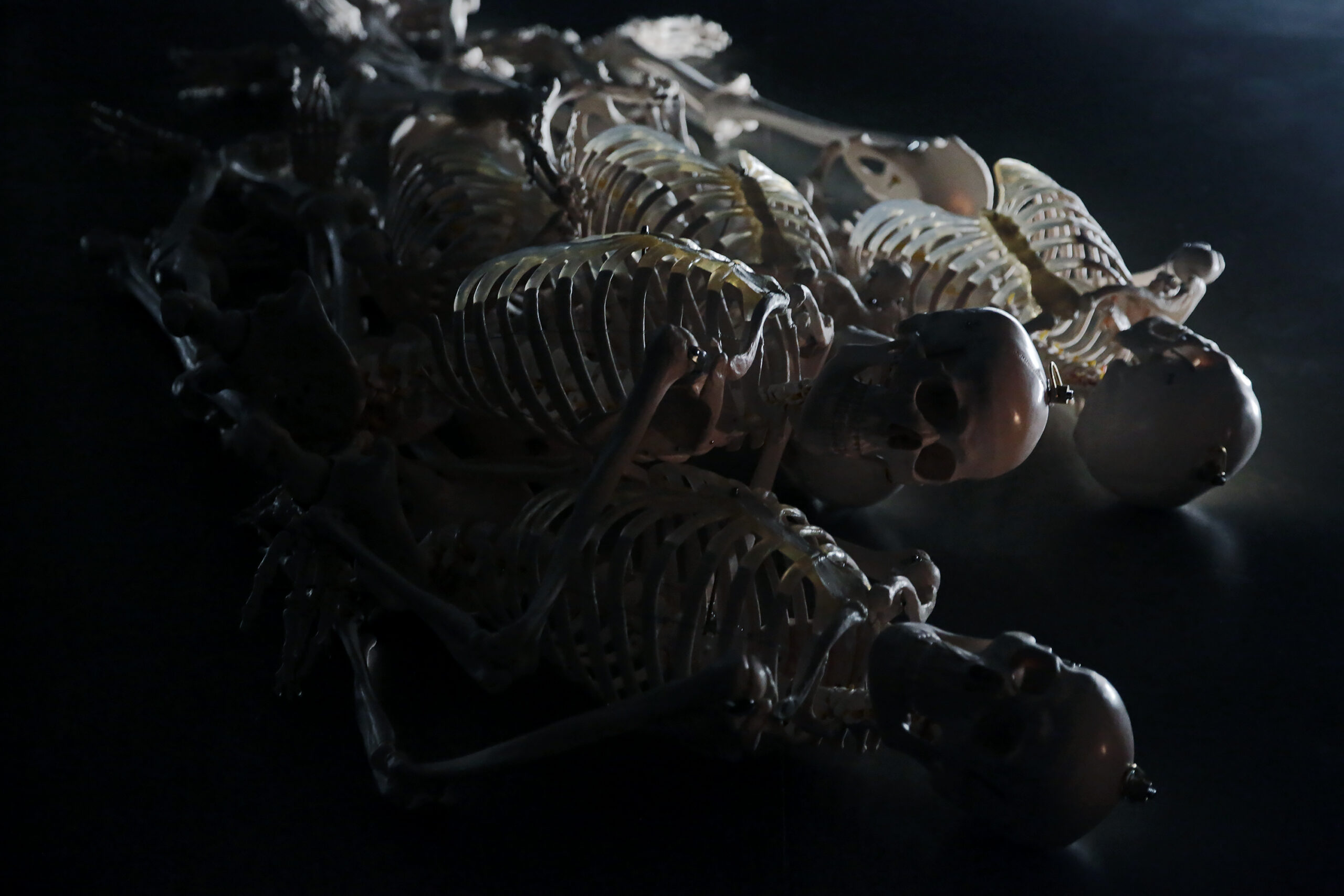Dance
Portugal
16 years
90'
14 Sep ∙ Wednesday ∙ 8:00 pm
Centro Espanhol de Santos15 Sep ∙ Thursday ∙ 7:00 pm
Centro Espanhol de SantosIn recent years, new migratory groups have chosen Portugal or Brazil to study, look for new job opportunities, or simply leave their country of origin for political reasons. But who are these new Brazilian and Portuguese migrants? What desires do they carry?
Tiago Cadete, a Portuguese performer and visual artist, experienced the situation of moving between Lisbon and Rio de Janeiro in the last eight years due to postgraduate studies at the School of Fine Arts of the Federal University of Rio de Janeiro (EBA/UFRJ).
In “Brasa,” he allies himself with two-way migrant co-creators: Brazilian people who went to Portugal and Portuguese people who migrated to Brazil. Despite their origins and different perceptions, he understands that more things unite than separate them. The work takes on multiple perspectives. Never losing sight of historical processes. From the “Carta do Achamento do Brasil” (Letter on the Discovery of Brail), by the nobleman Pero Vaz Caminha, to the intimate experience, actors come around with ghosts of family formation or coming from the chilling xenophobia or even from anti-democratic turns, passing through questions of gender, race, and sexuality.
The scenographic space is divided into two. Each field brings a canvas with the image of a forest in flames, a landscape that also allows an abstract reading – one of the panels is like the X-ray image of the other. Inter-impenetrable territorialities at the mercy of the movement of those who occupy the scene.
In these spaces in-between, critical feelings and thoughts burn. Some burning subjectivities are references to the language, soccer, or a street called Desterro.
Cadete explains that the word Brazil has its origins in the large number of pau-brasil trees existing on the Brazilian coast. Brazil derives from ember, as this tree has a reddish, ember-colored sap. For years these trees were harvested and sold to the European continent. “We can say it was one of the objects that most crossed the Atlantic.”
Who is he
Tiago Cadete (1988) lives between Portugal and Brazil, on the border between the performing and visual arts. He is the artistic director of the Co-pacabana structure. Ph.D. student in visual arts at EBA/UFRJ, where he holds a master’s degree from the same institution. He received a scholarship from the Management of Artists’ Rights (GDA) in the Laban/Bartenieff System postgraduate course at the Angel Vianna Dance College. Recent works include “Cicerone” and “Atlântico”, both of 2020, “Brasa” (2021) – split into a documentary co-directed by Afonso Sousa – and “Cortejo” (2022), with Solange Freitas.
Datasheet
Creation and space Tiago Cadete
Cocreation Gaya de Medeiros, Julia Salem, Keli Freitas, Magnum Soares e Tiago Cadete
With Dori Nigro, Julia Salem, Keli Freitas, Leonor Cabral, Tiago Cadete e Tita Maravilha
Video participation Ana Lobato, Dori Nigro, Gaya de Medeiros, Gustavo Ciríaco, Isabél Zuaa, Magnum Soares, Raquel André e Keli Freitas
Creation assistant Leonor Cabral
Costumes Carlota Lagido
Costumes assistant Sandra Guerreiro
Lighting Rui Monteiro
Camera Afonso Sousa
Screen editing António MV
Technical director Élio Antunes
Executive production in Portugal Cláudia Teixeira
Executive production in Brazil Bomba Criativa – coordenação Julia Baker
Financial management and administration debut Vítor Alves Brotas
Press consultancy in Portugal Mafalda Simões
Publicity photography Afonso Sousa e Tiago Cadete
Scene photographs João Tuna e Bruno Simão
Documentary Afonso Sousa e Tiago Cadete
Production Co-pacabana
Artistic residences Fábrica das Ideias, Gafanha da Nazaré (23 Milhas), Espaço do Tempo, Teatro da Malaposta e Teatro da Voz
Coproduction BoCA – Biennial of Contemporary Arts
Project financed by República Portuguesa – Cultura/Direção-Geral das Artes
Institutional partner República Portuguesa – Ministério da Cultura
“Brasa” is commissioned by BoCA – Bienal de Artes Contemporâneas 2021



